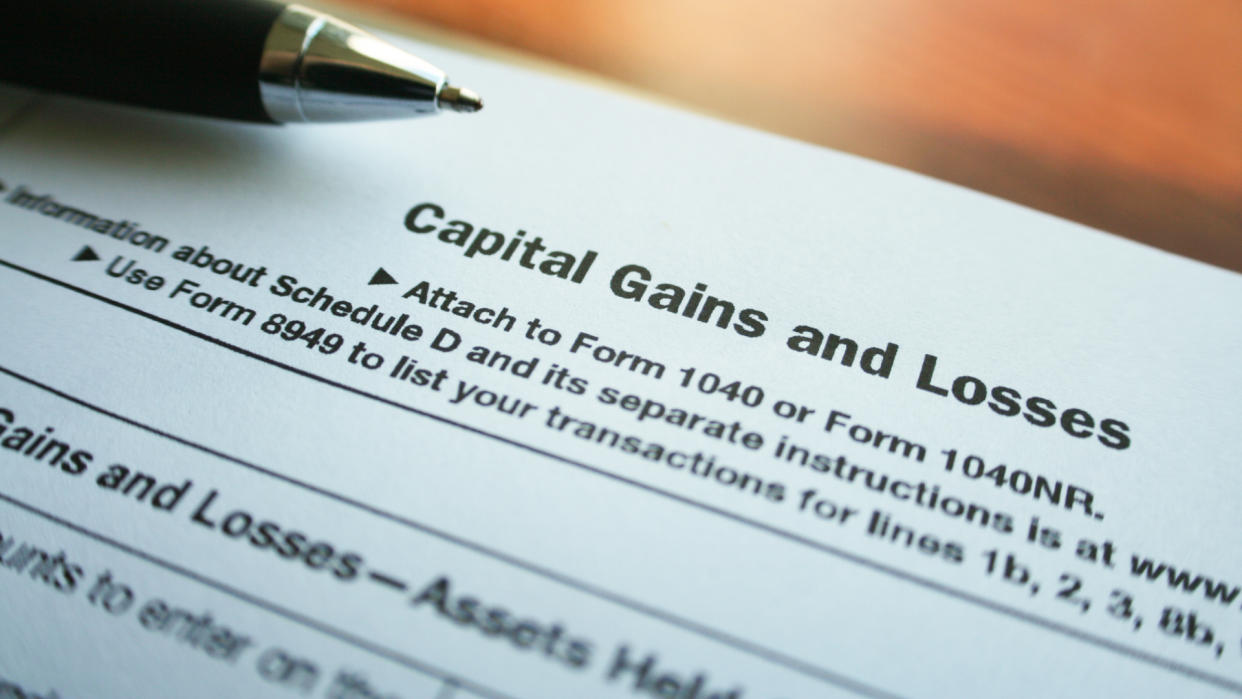How Biden’s Proposed Capital Gains Tax Could Impact Your Investments

President Biden’s jaw-dropping proposal to raise the capital gains tax rate for certain investors has caused shockwaves across financial markets.
The proposed taxes are detailed in the administration’s report “General Explanations of the Administration’s Fiscal Year 2025 Revenue Proposals.” According to the report, “Long-term capital gains and qualified dividends of taxpayers with taxable income of more than $1 million would be taxed at ordinary rates, with 37 percent generally being the highest rate.”
Read Next: Trump-Era Tax Cuts Are Expiring — How Changes Will Impact Retirees
Check Out: Owe Money to the IRS? Most People Don’t Realize They Should Do This One Thing
However, the report also noted that other proposals could impact those rates. “A separate proposal would first raise the top ordinary rate to 39.6 percent … An additional proposal would increase the net investment income tax rate by 1.2 percentage points above $400,000 … Together, the proposals would increase the top marginal rate on long-term capital gains and qualified dividends to 44.6 percent,” according to the report.
Currently, the capital gains tax is “no higher than 15% for most individuals,” per the IRS. While Biden’s proposal targets corporations and the wealthy, experts warn that it could have a negative impact on the economy.
Effects of the Proposed Tax Change
“Investment is the real driver of economic growth,” E.J. Antoni, an economist and research fellow at The Heritage Foundation, told Fox News Digital. “Investment is what gives you productivity gains. Investment is where you get factories and machines — it’s where businesses are able to provide their workers with tools and equipment that allow them to increase their productivity, to increase wages, etc.
“If you’re going to tax something, you get less of it. And that’s just as true for investment as it is for anything else. Taxing capital gains means less investment, it means less economic growth, and it means the rise in people’s standards of living is going to slow dramatically,” Antoni added.
The capital gains tax hike could also impact small businesses and startups. “Knowing that their unrealized gains will be taxed, investors would be less inclined to invest in growth-oriented businesses, which tend to see greater swings in valuation year-over-year than larger, more established companies,” Forbes reported. “The consequence? A slower rate of innovation and a reduced growth in productivity.”
Find Out: Billionaires vs. the Middle Class: Who Pays More in Taxes?
Taxing unrealized capital gains is an unprecedented concept. “Imagine purchasing shares in a company for $1 million, and next year, those shares appreciate to $1.5 million. Under Biden’s plan, you would owe taxes on this $500,000 gain, despite not having sold the shares or realized any actual profit,” per Forbes.
But it can get even worse. “Now imagine that the stock’s value drops back to $1 million the following year. You’ve already paid 25% on a gain that existed only on paper, and now you’re also left shouldering a financial burden without any actual economic benefit,” according to Forbes.
If Biden’s agenda does get passed, it could mean less revenue. “If Biden actually did raise rates to 44.6%, there would be less trading and therefore less revenue. The bottom line, those with means will change strategies. It will be a populist ‘win’ without generating more revenue to federal coffers, thus increasing and not reducing deficits,” said Scott Bishop, co-founder of Presidio Wealth Partners in Houston, per Financial Advisor.
More From GOBankingRates
6 Reasons the Poor Stay Poor and Middle Class Doesn't Become Wealthy
This is The Single Most Overlooked Tool for Becoming Debt-Free
This article originally appeared on GOBankingRates.com: How Biden’s Proposed Capital Gains Tax Could Impact Your Investments
